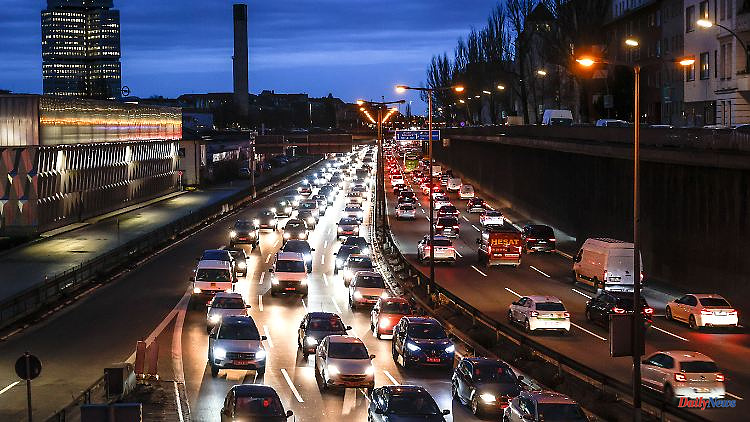The upcoming vote on a blanket phasing out of combustion engines from 2035 will be postponed. Previously, the FDP announced that Germany would only agree if there was an exception for e-fuel vehicles. So far this is not the case. A problem, because the "yes" of the Germans is needed to implement the ban.
Next Tuesday, the EU states want to vote on a blanket ban on new cars with internal combustion engines from 2035. That will now be adjourned, said a spokesman for the responsible EU Council Presidency. There was already resistance to the regulation from the FDP. Federal Transport Minister Volker Wissing has already announced that Germany would not agree unless there is an exemption for vehicles that can be operated with so-called e-fuels, i.e. synthetic fuels. He referred to a clear mandate to the EU Commission to enable the use of climate-friendly e-fuels in cars.
This applies to the existing fleet as well as to combustion engines. "In the meantime I have spoken to Commissioner Frans Timmermans and made it clear once again that we expect the Commission to submit a proposal," Wissing told the Rheinische Post. "It was a clear task that could have been implemented long ago. But since nothing is on the table so far, we as the FDP cannot agree." Banning offers for climate-neutral mobility, Wissing continued, makes no sense.
Finance Minister Christian Lindner reiterated his no to the entire ban and also advocated the approval of vehicles that run on "climate-friendly eco-fuel", he told the Funke media group, for example.
The Green-led Economics Ministry is also argumentative on the FDP line. State Secretary for Economic Affairs and Green Party politician Sven Giegold said on the sidelines of an EU meeting in Brussels: "We as Germany have always said: We support the end of old, conventional combustion engines, but we want a solution outside of the fleet limits, i.e. outside of this law such combustion engines that are only operated with sustainable e-fuels." Giegold was optimistic about a solution from the EU Commission.
Without Germany's approval, the vote planned for Tuesday could have failed. Passing the law requires the approval of 15 out of 27 member states, which together must make up at least 65 percent of the total population of the EU. In addition to Germany, countries such as Italy, Poland and Bulgaria recently did not want to agree to the plans. The 65 percent hurdle would not be reached without Germany.












